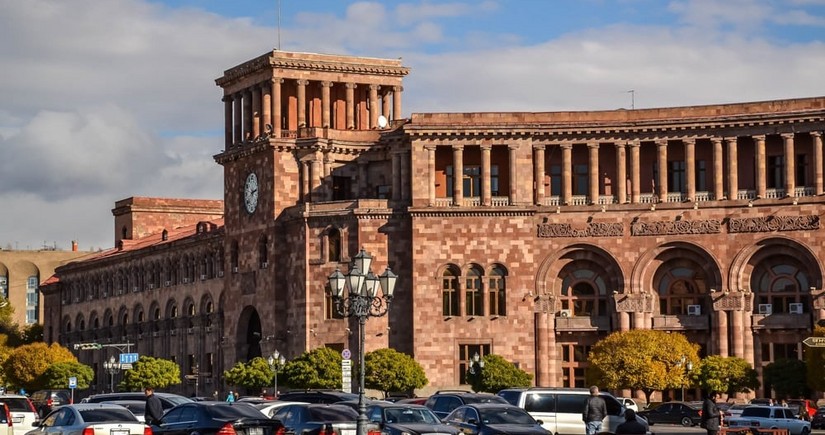Neo-Nazism in Armenia: A new reality under the guise of democracy
- 16 December, 2024
- 13:07

On December 18, on the eve of the anniversary of the death of Garegin Nzhdeh - the founder of Armenian neo-Nazism - members of the neo-Nazi political movement "Hosank" plan to hold a press conference in downtown Yerevan. The movement's participants intend to share their "grandiose" plans for building an "Armenian Reich." Perhaps in no other country could a Nazi group operate so openly, but in Armenia, it does not raise many questions.
The neo-Nazi movement "Hosank," organized by US citizen Hayk Nazaryan, uses Nazi symbols and promotes the ideas of Armenian racial superiority and anti-Semitism. All of this occurs without any intervention from the authorities or condemnation from society. For example, in January of this year, neo-Nazis held a rally at the Nzhdeh monument in Yerevan, where a group of young people dressed in black greeted passersby with a Nazi salute, which no one prevented. Armenian media often merely report such events without any condemnation, while the authorities mostly do not react to them.
Nzhdehism, the Armenian analogue of German Nazism, continues to influence Armenian political and cultural life. This ideology is based on the ideas of ethnic purity and the superiority of Armenians over other peoples. It promotes ideas of hatred, which in practice translates into acts of violence and cruelty.
In school textbooks and Armenian media, history is completely distorted. In films and books, Armenians are portrayed as righteous "liberators," whose goal, nevertheless, is to seize the territories of neighboring countries. All of this creates a false sense of greatness among the youth and society and legitimizes ideas that are alien to modern democratic values.
Various neo-Nazi groups and movements that have increasingly emerged in Armenia in recent years use modern tools, such as social media, to propagate their views and attract new supporters. Notably, such movements often present themselves as defenders of democracy and freedom of speech, which allows them to avoid strict control by the authorities.
Some of these groups actively participate in public and political life, supporting certain parties or politicians. Their rhetoric may include calls for ethnic purity, discrimination against minorities, or strict migration policies. These statements are often accompanied by a distortion of historical facts and the use of pseudoscientific arguments.
The West continues to admire Armenian "democracy," ignoring the growing neo-Nazism and propaganda of hatred. The problem is not that the Armenian people do not recognize the threat, but that their consciousness is so perverted by historical myths and ideological propaganda that they cannot adequately perceive reality. In this situation, the tragedy lies not in the fictional "genocide," but in the deep distortion of public consciousness that prevents seeing the world as it is.
The rise of neo-Nazism in Armenia also affects its international image. Partners in the European Union and other international organizations closely monitor the internal situation in the country. Democratic values and respect for human rights are key conditions for receiving external support, and any manifestations of radicalism can jeopardize these relationships. Armenia's future, as many experts note, depends on its ability to resist radicalism and maintain its commitment to democratic values, which are the foundation of stability and prosperity for any state.
